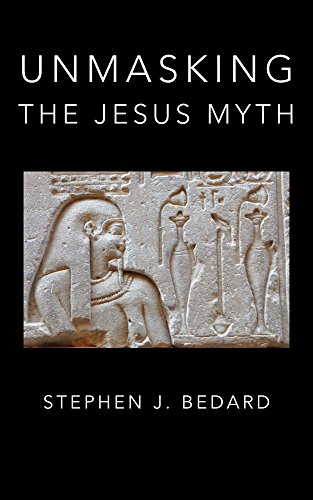

The “miracle supplement” myth pervades the health and wellness industry, promising quick fixes and extraordinary results. These products, often shrouded in hype and misleading marketing, frequently underdeliver on their promises. This article dives deep into the world of hyped supplements, exploring the reasons behind the exaggerated claims and highlighting the importance of critical evaluation when choosing health products. We’ll examine the common pitfalls of falling for marketing schemes, discuss the importance of evidence-based nutrition, and provide actionable strategies for making informed decisions about your well-being. This article is structured to uncover the truth behind these claims and equip you with the tools needed to navigate the complex landscape of supplements and make informed choices.
Decoding the Marketing Hype
Understanding the Psychology Behind False Promises
Many “miracle supplement” products rely heavily on emotional appeals and exaggerated claims. The marketing often focuses on anecdotal evidence rather than robust scientific studies, preying on consumer desires for quick and easy solutions. This phenomenon stems from a desire to find shortcuts to wellness, often fueled by societal pressure to maintain an ideal image. Furthermore, the supplement industry is largely unregulated, creating an environment where false claims can flourish. Companies may make exaggerated claims about the benefits of their products, without substantial scientific evidence. This phenomenon stems from a desire to find shortcuts to wellness, often fueled by societal pressure to maintain an ideal image.
Examining the Scientific Basis
The Lack of Robust Evidence
Many “miracle supplement” products lack substantial scientific backing. Often, the benefits claimed are not supported by rigorous clinical trials or peer-reviewed studies. This is a critical issue when consumers are presented with products offering exaggerated claims without credible scientific evidence to support them.
Case Studies and Real-World Examples
The pitfalls of trusting unverified information
Numerous instances highlight the shortcomings of “miracle supplement” products. For example, a widely publicized supplement, claiming to dramatically improve cognitive function, was found to have no significant impact in a double-blind placebo-controlled trial. This demonstrates how companies can use persuasive language and anecdotal evidence to promote products that fail to live up to their claims.
The Importance of Evidence-Based Nutrition
Prioritizing Credible Sources and Expert Advice
In contrast to the “miracle supplement” approach, evidence-based nutrition promotes a holistic approach to health and wellness. This approach emphasizes a balanced diet, regular exercise, and stress management, rather than relying on single supplements.
Practical Steps to Make Informed Decisions
Avoiding the Hype and Choosing Wisely
Consumers should be skeptical of overly ambitious claims. Rather than relying on isolated product claims, prioritize a healthy lifestyle as a foundation for your well-being. Consult with a healthcare professional or registered dietitian for personalized recommendations. Before adding any supplement to your routine, consult your doctor.
Identifying the Root Causes of the Hype
Examining the Marketing Strategies
The relentless pursuit of quick fixes and solutions to everyday health concerns drives consumer demand for these “miracle” supplements. Companies capitalize on this need by crafting persuasive marketing campaigns. Look for ways they use emotional appeal and exaggeration to promote the product.
Unmasking Misleading Claims
Spotting the Red Flags in Supplement Advertising
Often misleading ads for these miracle supplements will showcase unverifiable testimonials and anecdotal evidence to support exaggerated product benefits. Look for claims that lack specific information or don’t specify the quantity of use needed to see a certain effect.
Fostering a Culture of Critical Evaluation
The Role of Education and Awareness
Promoting a culture of critical evaluation of health claims requires education and awareness. This is important to build a public understanding of how to distinguish fact from fiction. A key element to this culture is being able to distinguish misleading claims from those that are scientifically backed.
Building a Holistic Health Approach
Balancing Nutrition, Lifestyle, and Mental Well-being
Instead of focusing on “miracle” supplements, a healthier approach emphasizes balance. This balance encompasses nutrition, exercise, stress reduction, and mental well-being—all crucial aspects of a well-rounded lifestyle.
Frequently Asked Questions
What are the common characteristics of overhyped supplements?
Overhyped supplements often employ misleading marketing, focusing on anecdotal evidence over scientific studies. They may use exaggerated or ambiguous language to make a product sound more effective than it is. Be wary of product promises that sound too good to be true! Look for evidence and seek advice from your doctor to avoid being misled.
How can I differentiate between genuine and misleading health information?
To avoid falling for health misinformation, consult reputable sources like the FDA, NIH, and Mayo Clinic for up-to-date information. Be critical of claims made by non-medical personnel or non-credible sources. Look for research-based information backed by clinical trials and scientific data. Look for clinical trials and scientific evidence to support the claims.
In conclusion, the “miracle supplement” myth highlights the importance of critical thinking and discerning information. Don’t fall prey to overhyped marketing tactics; instead, prioritize evidence-based strategies for achieving your health and wellness goals. Research, consult with healthcare professionals, and prioritize a balanced approach to nutrition and lifestyle. Ultimately, a holistic and responsible approach, supported by credible science, is key to real and lasting results. Learn more about how to spot false promises and discover proven strategies for sustained well-being by visiting our website or clicking here.